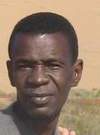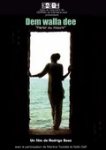

Sidiki Abdoul DAFF
Coordinator of the West African Facilitation Committee of the Charter, located in Senegal. Coordinator of the International Alliance of Inhabitants (IAH) for Africa.
More details
Associated Topics to this author: Art and responsibility . Governance, Human Rights, and responsibility . Education and responsibility . Cross-culturalism, dialog and multilingualism . Conflict management . Culture . Education . International organizations . Social responsibility . Art . Youth . Artists . Children . Citizenship . Ethics . Governance . Individual responsibility . Migrants . Community responsibility . Human Rights . Communication . Cross-cultural .
27 March 2008
|
27 March 2008
|
Conjugating the Charter in West Africa - 13 February 2008
In the 2006 Report we had stated, “One of our major concerns was to avoid that work on the Charter should make sure it would not appear as an abstract philosophical theory that could only be understood by those who are accustomed to this kind of thinking. So we had to review our approach so as not to fall on discussions that only insiders would be interested (...) |
The Charter with background rap music, in Wolof, French and English! - 13 March 2007
To help the youth taking over the Charter principles and disseminating it around them through music. |
Is the international cooperation an efficient instrument to fight against poverty? - 14 December 2006
The civil society presents its proposals to face this challenge |
For a topical approach in West Africa - 23 January 2006
We will focus this year the topical approaches with sub-regional dimension in different contexts. |
Informative and educative tools and strategies - 17 April 2005
Folders, tapes, workshops, public conferences...
Download the Charter document in Wolof, and listen to the Charter song in wolof! |
2005: Difusing the Charter in the local languages of Ouest Africa - 17 April 2005
Activities in 2005 - We have followed our work according to the axes stated before, going on with the process of translation of the Charter in various African languages, and organizing diffusion and debates on the Charter in various sectors. |
Translating the Charter of Human Responsibilities from French to Wolof (Senegal), or the difficulty of translating the concept of responsibility into Wolof - 10 April 2005
The job of translating the Charter was given to a group of Senegalese linguists who are national language specialists and/or promoters. Socially speaking, this group is made up of religious people (imams), national language reading and writing teachers and campaigners fighting for the use of national languages in the education system. They all master both forms of Wolof transcription: that (...) |
The Charter of Human Responsibilities: from written to oral expression - 10 April 2005
In order to popularise the Charter in Senegal, we opted for a comprehensive approach using diversified formats (text, audio tape). It was translated into the national language, Wolof (first national language in Senegal) with Latin lettering. In Senegal this language can also be written with Arabic lettering. Yet this is still not enough for the Charter to be shared as 70% of Senegalese (...) |
Sidiki Abdoul DAFF - 7 January 2005
What makes me tick: voicing the voiceless
I am Senegalese, a history teacher by profession, married and father of 2 children. I got involved in social activities very early on, from the age of 15 (I’m now 49). I started by teaching people to read and write in French in my native village, Kanel (Northern Senegal) and then within other organisations in different areas of Senegal (in Casamance, (...) |

 A video (in French) on immigration, its motivation, risks,...
There are certain slogans you are likely to have heard the young people of Senegal using over the last three years: “barsa mba barsaq” (Barcelona or death), “mbëkkmi” (break down the borders), “dem walla de” (leave or die). They try to reach Europe via the Atlantic Ocean in their thousands, risking their lives in the most basic of small boats. ...
A video (in French) on immigration, its motivation, risks,...
There are certain slogans you are likely to have heard the young people of Senegal using over the last three years: “barsa mba barsaq” (Barcelona or death), “mbëkkmi” (break down the borders), “dem walla de” (leave or die). They try to reach Europe via the Atlantic Ocean in their thousands, risking their lives in the most basic of small boats. ...
